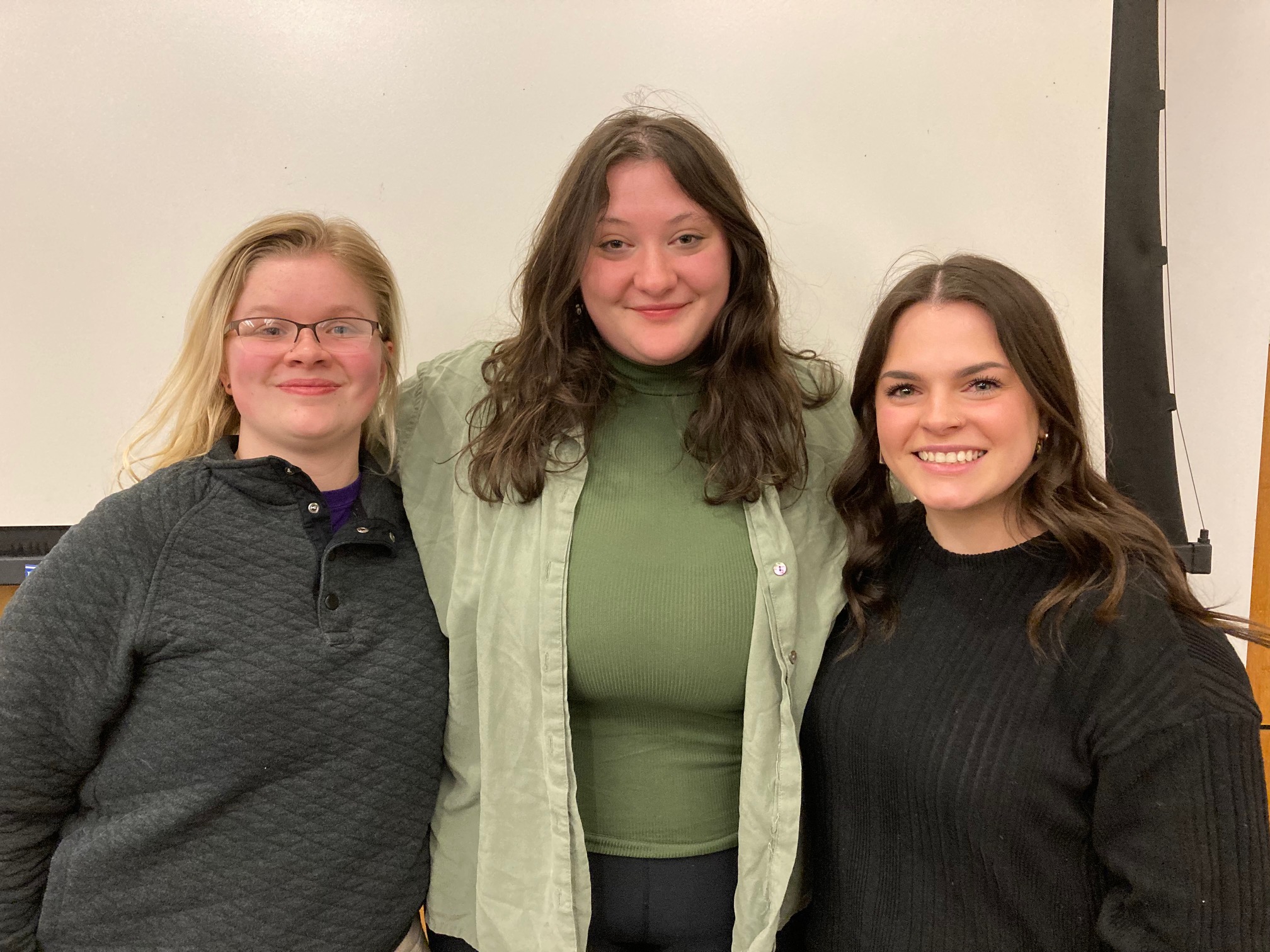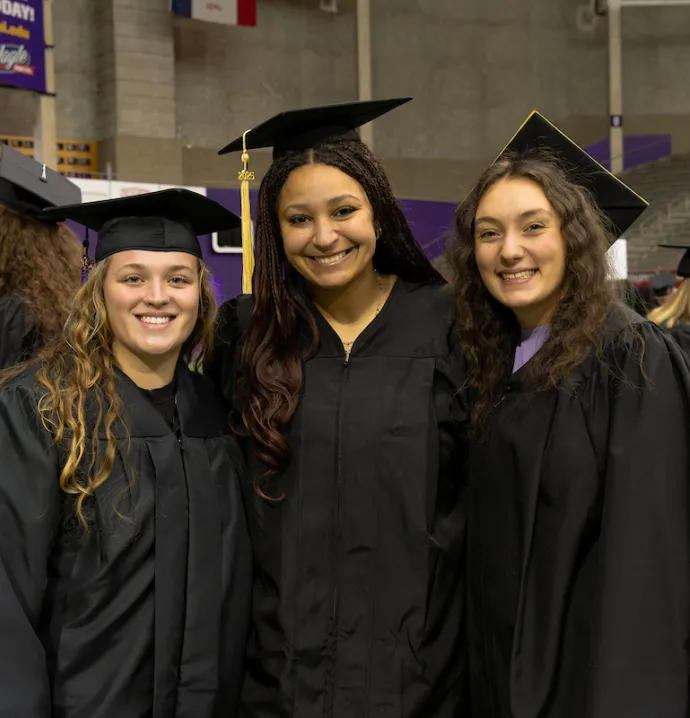UNI public health students earn top honors at national competition
UNI public health students earn top honors at national competition

CEDAR FALLS, Iowa – Three students from the University of Northern Iowa have earned national recognition for their outstanding performance at the prestigious National Case Study Competition in Health Education (NCSCHE®).
The UNI team — made up of public health majors Trina Tounjian, Megan Kopp and Lorelei Cash — was one of only six undergraduate teams to achieve the competition’s Gold Standard designation and was further distinguished by receiving the Outstanding Undergraduate Program Design award — the highest honor for undergraduate teams.
"I am absolutely thrilled with our students. We are so proud of them," said Disa Cornish, professor of public health at UNI. "Their hard work, creativity and professionalism truly stood out."
The NCSCHE® brings together student teams from leading universities across the country to solve real-world public health education challenges. Teams are given a community-based case three weeks in advance and must independently develop and present their solutions, demonstrating proficiency in the National Commission for Health Education Credentialing (NCHEC) Core Competencies.
This year’s case challenged teams to address a pressing public health issue in Long Beach, California. Participants were tasked with developing an innovative evidence-based, and culturally relevant approach to provide residents with the information and support necessary to improve health outcomes in the community. Teams received basic information about the health concern, the local population and current efforts already underway. The UNI team developed a comprehensive program plan grounded in theoretical framework, leveraging existing community resources in Long Beach. Their plan included clearly defined goals and objectives, along with a detailed budget to support the plan.
This year’s competition, held virtually April 15-16, featured 22 teams (15 undergraduate and 7 graduate teams). Each team of three students had 20 minutes to present their case before a panel of judges, who awarded Gold, Silver or Bronze designations based on the quality of their resolutions.




